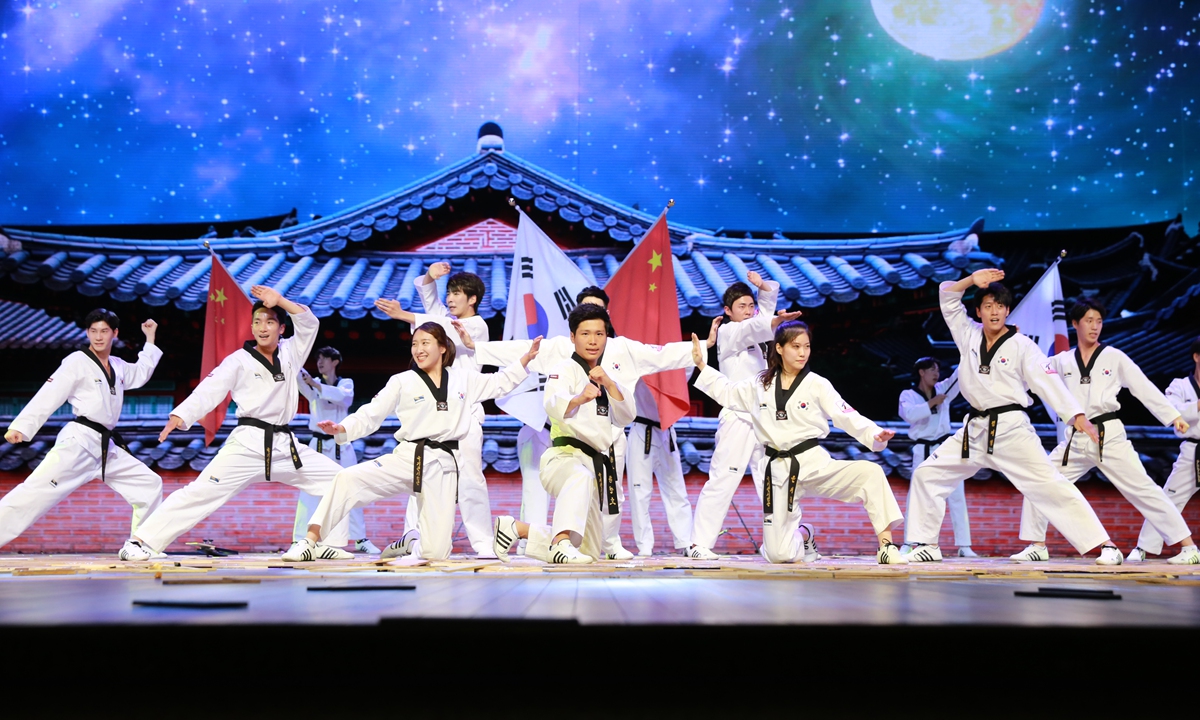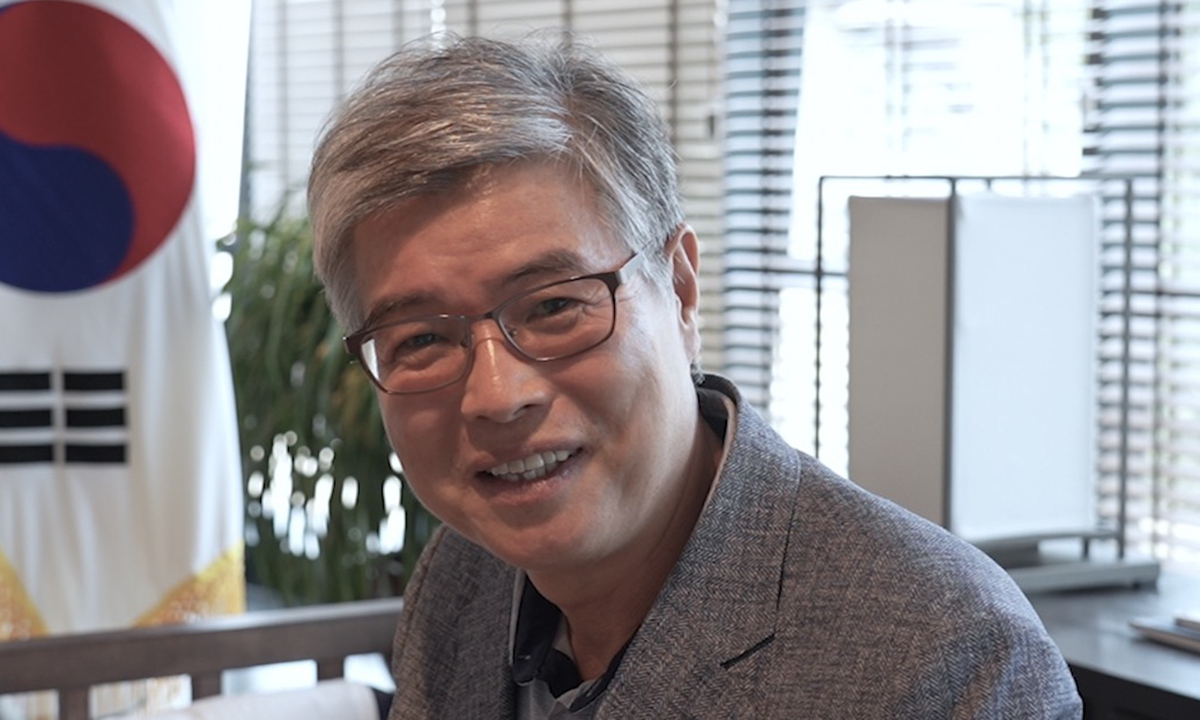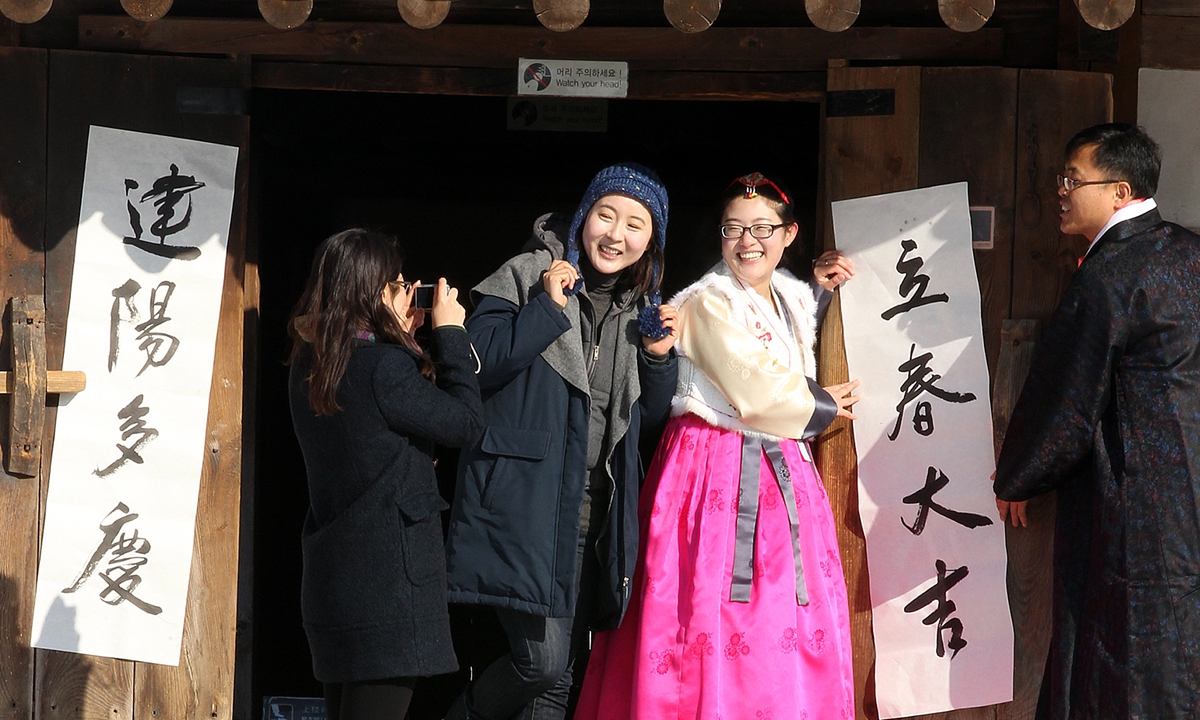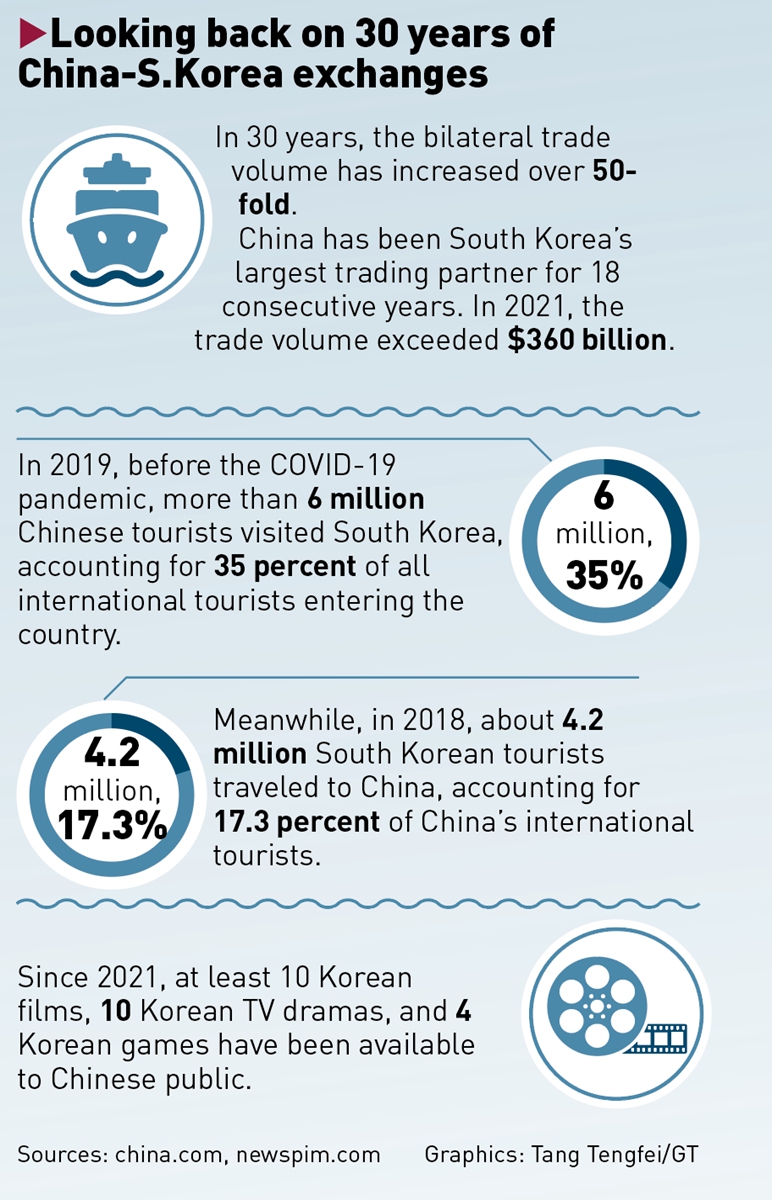
Athletes from Kukkiwon, also known as World Taekwondo Headquarters, perform Taekwondo in Yinchuan, Northwest China's Ningxia Hui Autonomous Region in July 2018 during a cultural exchange activity between Ningxia and South Korea. Photo: Courtesy of Korean Cultural Center (Beijing)
Editor's Note:As the world grapples with unilateralism-induced crises that have threatened global peace, China continues to be a shining example on the international stage, injecting a stable, developmental and cooperative momentum. Over the last decade, China, under the strong leadership of the Communist Party of China (CPC), has achieved great success. In this series, the Global Times will interview diplomats from various countries, who will share their views on China's development and what it means for the world.
Thanks to the geographical proximity and cultural commonality, China-South Korea cultural and people-to-people exchanges have been enhanced consistently since the establishment of diplomatic ties three decades ago, which further fortified the mutual understanding of the people in the two countries, and has made a solid foundation for the healthy growth of bilateral relations.
In an exclusive interview with Global Times (
GT) reporters Shan Jie, Xing Xiaojing and Liu Xin, Kim Jin-gon (
Kim), minister-counselor from the embassy of the Republic of Korea in China and director of the Korean Cultural Center in China, shared his experiences of living in China in the last decade, his observations on the 30-year ties between China and South Korea, as well as his expectations for the future of bilateral ties.

Kim Jin-gon, minister-counselor from the embassy of the Republic of Korea in China and director of the Korean Cultural Center in China Photo: Courtesy of Kim
GT: What is your perspective on the exchanges between China and South Korea over the last 30 years?
Kim: On August 24, 1992, the Republic of Korea and the People's Republic of China formally established diplomatic relations. The same year marked my first year as a civil servant and my first year of marriage, so it was a very meaningful year not only for South Korea and China, but also for me personally. In 2022, as my wife and I commemorate our "pearl anniversary," the relations between South Korea and China are also commemorating a milestone year.
Since the establishment of diplomatic relations in 1992, South Korea and China have achieved unparalleled leaps forward not seen anywhere else in the world. The trade volume between South Korea and China now exceeds $300 billion. China has become South Korea's largest trading partner, and South Korea has become China's third largest trading partner after the US and the European Union. In 2019, before the COVID-19 pandemic, the personnel exchanges between South Korea and China exceeded 10 million. South Korea became the largest personnel exchange country for China and vice versa.
In my opinion, the reason why the relationship between the two countries can develop so rapidly is due to geographical proximity, cultural commonalities, and thousands of years of exchange experiences, which have provided a solid foundation for the exchanges between South Korea and China over the last three decades.
GT: You have spent most of your time in China for the last 10 years. During China's 10 years of rapid development, what impressed you the most?
Kim: I realized the significant improvement in China's international status during my period of study in the UK from 2004 to 2006, and soon began to learn Chinese. From June 2010 to February 2012, I served as the press counselor at the South Korean Embassy in China; from February 2012 to February 2016, I served as the minister-counselor of the South Korean Embassy in China and the director of the Korean Cultural Center in Beijing. After that, I returned to South Korea and worked in the Ministry of Culture, Sports, and Tourism for four years. Then in March 2020, I once again came to China, to serve as the director of the Korean Cultural Center for the second time.
Over the last decade, China has gradually developed into a global power with a sense of responsibility. What impressed me the most is the improvement of the air quality in Beijing. Before returning to China in 2020, my wife and I were worried about the smog problem, but after we arrived, we found that the air quality in Beijing was completely different from what it used to be. With technological inventions such as Alipay and WeChat Pay that enable us to live a cash-free life, Didi taxis that can be hailed in minutes, and shared bicycles that can be used anywhere, life in Beijing is much more convenient and agreeable.
It is worth mentioning that my wife learned to ride a bicycle in Beijing and fell in love with cycling. The scenery we see along the roads while riding a bike is even more beautiful than what we see while driving a car. Now whenever we are free, we ride around Beijing under the blue sky and white clouds. Through my own experience, I truly feel the rapid developments in the informatization, digitization, and sharing economy in China, which are things that South Korea can learn from.

Employees clad in Korean traditional dress attach a sheet of paper with springtime blessings in Chinese characters to a gate at the National Folklore Museum in Seoul. Photo: VCG
GT: What are the characteristics of the younger generation in China and South Korea? Why is it so important to enhance exchanges between the young people of the two countries?
Kim: Chinese young people are diligent and full of confidence. In the enormous Chinese market, success can be achieved as long as they possess enough creativity and courage. In Korea, young people are leaders of the new information age as well. Now it is not the older generation like us that leads them, but the opposite, that young people are leading us. What young Koreans and the Chinese youth have in common is that on the basis of oriental etiquette, they are both leaders of the age of information.
Sometimes young people from South Korea and China have debates over cultural issues on the internet, which can be perceived as a "common occurrence." China and Korea are culturally connected, which provides us with favorable conditions to become good friends. However, cultural commonalities can sometimes turn into so-called "cultural territorial disputes," which is not appropriate for the friendship. To prevent these kinds of situations, it is necessary for us to re-examine our mutual cultures while expanding cultural exchanges and cooperation.
In my opinion, culture belongs to all human beings; the more we share, the more diverse it becomes. Rather than arguing about the "ownership" of a certain culture, "I like it and you like it too" may be a better way of culture's existence.
GT: Do you have a favorite Chinese film or actor?
Kim: As presented in the Korean drama Reply 1988, in the 80s Koreans really loved Hong Kong movies and I've been there myself. Hong Kong kung fu stars such as Bruce Lee, Jackie Chan, and Sammo Hung were very popular. Now I prefer Chinese historical films and TV works, such as the Qin Dynasty Epic, which tells the story of Qin Shi Huang's unification of the country, helping me better understand the history of China. To me, "learning is never ending." Chinese films and television shows are important avenues for me to learn about China.
Tang Wei is one of my favorite Chinese actresses. I once met her at an event where we chatted and drank beer during a dinner party. She is outgoing, natural and graceful, which makes people comfortable around her. Married to Korean director Kim Tae-yong, Tang Wei enjoys great popularity in South Korea.

Graphic: Tang Tengfei/GT
GT: From a cultural perspective, how do you interpret the vision of "a community with a shared future for mankind?"
Kim: The cultural world has the "win-win" feature that the more it is shared, the richer it becomes. In the material world, if I give my possession to others, for me the thing is gone, but the rule doesn't apply to "knowledge." Just as President Xi Jinping said, "Civilizations have become richer and more colorful with exchanges and mutual learning."
The lives of Korean and Chinese people will be more beautiful and colorful if South Korea and China not only exchange their rich and varied traditional cultural heritages, but also share new cultural content created by the creativity of the countries' citizens. Therefore, the governments of the two countries should continue to work hard to further expand cultural exchanges and cooperation.
GT: China and South Korea have had diplomatic ties three decades together after the establishment of diplomatic ties. What is your expectation for the future development of relations between the two countries?
Kim: On the occasion of the 30th anniversary of the establishment of diplomatic relations between South Korea and China, to further expand cultural exchanges and cooperation between the two countries, 2021 and 2022 have been earmarked as the China-South Korea Year of Cultural Exchanges. In preparation for the Beijing Winter Olympics, the Korean Cultural Center in Beijing and the Chinese Cultural Center in Seoul jointly held the "Pyeongchang Winter Olympics and Beijing Winter Olympics Photo Exhibition."
In addition, the Korean Cultural Center in China plans to hold an exhibition of Korean-Chinese lacquer crafts to celebrate the 30th anniversary of the establishment of diplomatic relations on August 23, and we also plan to display a large-scale pendant work with the theme "the Korea-China bond" on the outer wall of the Cultural Center.
While sharing cultural commonalities, the cultures of Korea and China each has its own unique features and connotations, which can be described as "harmonious but different" according to me. In my opinion, China and Korea should consolidate the commonalities of our cultures while respecting and recognizing each other's differences.
Being good friends requires not only cultural connections but also spiritual connections. Cultural commonalities are constant, but a spiritual connection is a variable that can change at any time. China and South Korea should work together to cultivate people's affinity toward one another on the basis of common culture. Over the last 30 years, the relations between South Korea and China have achieved rapid development based on cultural commonalities, and I hope that in the next 30 years, we can still be able to take culture as a key nutrient, using it to achieve win-win relations between the two countries.







